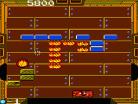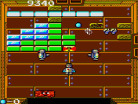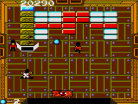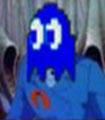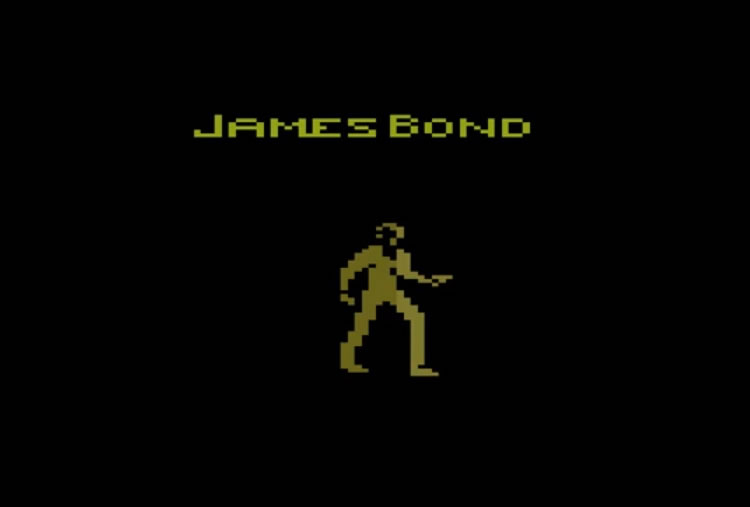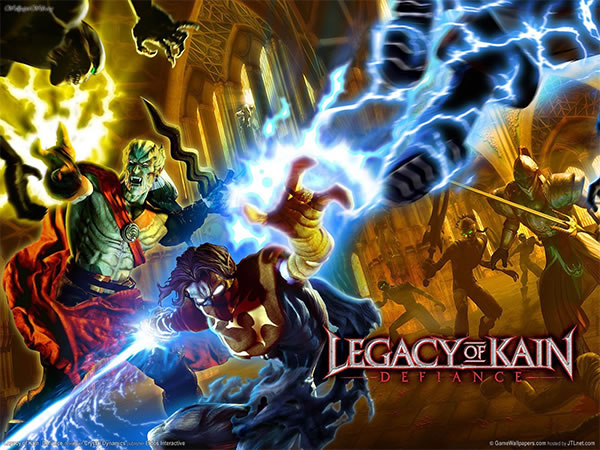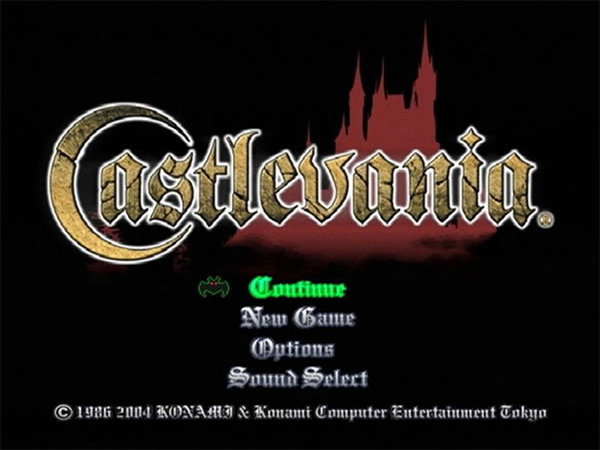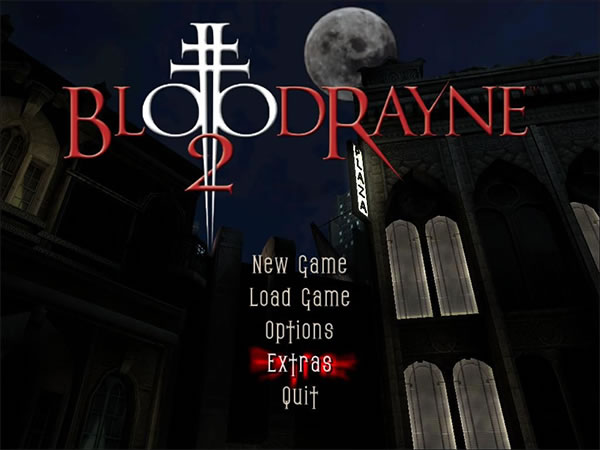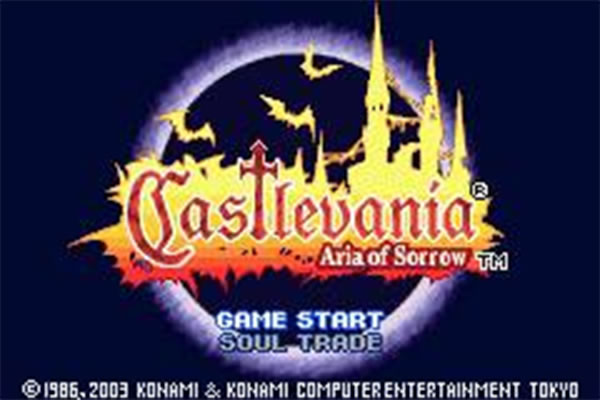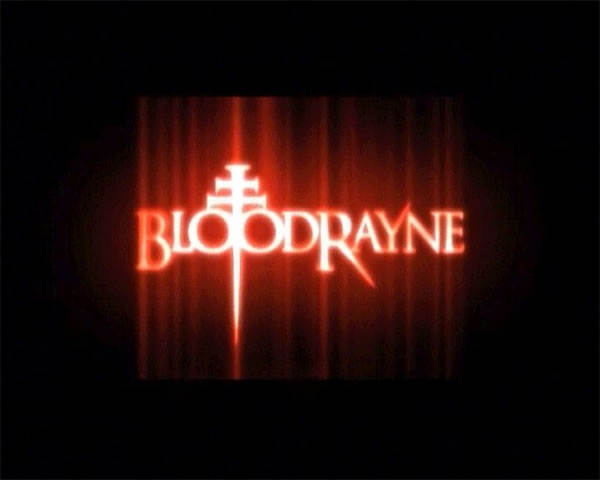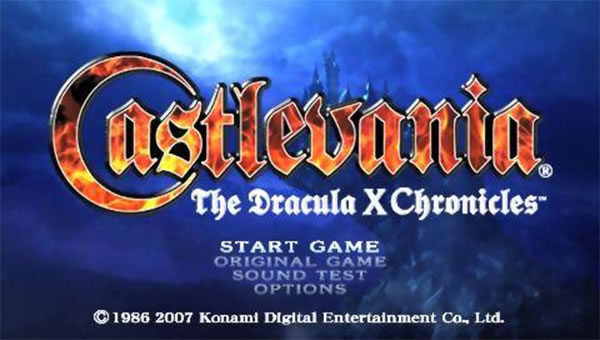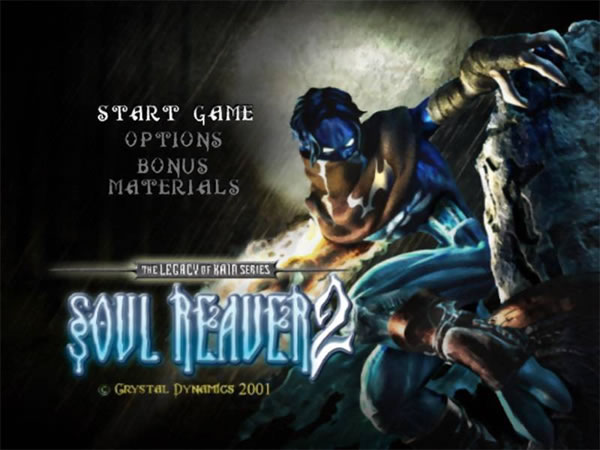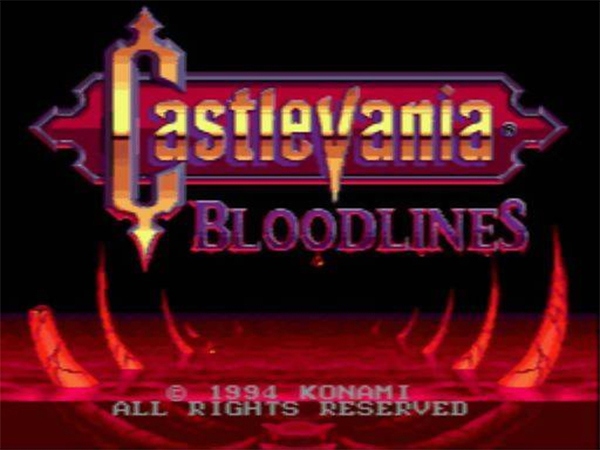- CLASSIC MAGAZINES
- REVIEW CREW
A show recapping what critics thought back
when classic games first came out! - NEXT GENERATION'S BEST & WORST
From the worst 1-star reviews to the best
5-stars can offer, this is Next Generation! - NINTENDO POWER (ARCHIVE)
Experience a variety of shows looking at the
often baffling history of Nintendo Power! - MAGAZINE RETROSPECTIVE
We're looking at the absolutely true history of
some of the most iconic game magazines ever! - SUPER PLAY'S TOP 600
The longest and most ambitious Super NES
countdown on the internet! - THEY SAID WHAT?
Debunking predictions and gossip found
in classic video game magazines! - NEXT GENERATION UNCOVERED
Cyril is back in this spin-off series, featuring the
cover critic review the art of Next Generation! - HARDCORE GAMER MAGAZING (PDF ISSUES)
Download all 36 issues of Hardcore Gamer
Magazine and relive the fun in PDF form!
- REVIEW CREW
- ELECTRONIC GAMING MONTHLY
- ELECTRONIC GAMING MONTHLY RANKS
From Mario to Sonic to Street Fighter, EGM
ranks classic game franchises and consoles! - ELECTRONIC GAMING MONTHLY BEST & WORST
Counting down EGM’s best and worst reviews
going year by year, from 1989 – 2009! - ELECTRONIC GAMING BEST & WORST AWARDS
11-part video series chronicling the ups and
downs of EGM’s Best & Worst Awards!
- ELECTRONIC GAMING MONTHLY RANKS
- GAME HISTORY
- GAME OVER: STORY BREAKDOWNS
Long-running series breaking down game
stories and analyzing their endings! - A BRIEF HISTORY OF GAMING w/ [NAME HERE]
Real history presented in a fun and pithy
format from a variety of game historians! - THE BLACK SHEEP
A series looking back at the black sheep
entries in popular game franchises! - INSTANT EXPERT
Everything you could possibly want to know
about a wide variety of gaming topics! - FREEZE FRAME
When something familiar happens in the games
industry, we're there to take a picture! - I'VE GOT YOUR NUMBER
Learn real video game history through a series
of number-themed episodes, starting at zero! - GREAT MOMENTS IN BAD ACTING
A joyous celebration of some of gaming's
absolute worst voice acting!
- GAME OVER: STORY BREAKDOWNS
- POPULAR SHOWS
- DG NEWS w/ LORNE RISELEY
Newsman Lorne Riseley hosts a regular
series looking at the hottest gaming news! - REVIEW REWIND
Cyril replays a game he reviewed 10+ years
ago to see if he got it right or wrong! - ON-RUNNING FEUDS
Defunct Games' longest-running show, with
editorials, observations and other fun oddities! - DEFUNCT GAMES QUIZ (ARCHIVE)
From online quizzes to game shows, we're
putting your video game knowledge to the test!- QUIZ: ONLINE PASS
Take a weekly quiz to see how well you know
the news and current gaming events! - QUIZ: KNOW THE GAME
One-on-one quiz show where contestants
find out if they actually know classic games! - QUIZ: THE LEADERBOARD
Can you guess the game based on the classic
review? Find out with The Leaderboard!
- QUIZ: ONLINE PASS
- DEFUNCT GAMES VS.
Cyril and the Defunct Games staff isn't afraid
to choose their favorite games and more! - CYRIL READS WORLDS OF POWER
Defunct Games recreates classic game
novelizations through the audio book format!
- DG NEWS w/ LORNE RISELEY
- COMEDY
- GAME EXPECTANCY
How long will your favorite hero live? We crunch
the numbers in this series about dying! - VIDEO GAME ADVICE
Famous game characters answer real personal
advice questions with a humorous slant! - FAKE GAMES: GUERILLA SCRAPBOOK
A long-running series about fake games and
the people who love them (covers included)! - WORST GAME EVER
A contest that attempts to create the worst
video game ever made, complete with covers! - LEVEL 1 STORIES
Literature based on the first stages of some
of your favorite classic video games! - THE COVER CRITIC
One of Defunct Games' earliest shows, Cover
Critic digs up some of the worst box art ever! - COMMERCIAL BREAK
Take a trip through some of the best and
worst video game advertisements of all time! - COMIC BOOK MODS
You've never seen comics like this before.
A curious mix of rewritten video game comics!
- GAME EXPECTANCY
- SERIES ARCHIVE
- NINTENDO SWITCH ONLINE ARCHIVE
A regularly-updated list of every Nintendo
Switch Online release, plus links to review! - PLAYSTATION PLUS CLASSIC ARCHIVE
A comprehensive list of every PlayStation
Plus classic release, including links! - RETRO-BIT PUBLISHING ARCHIVE
A regularly-updated list of every Retro-Bit
game released! - REVIEW MARATHONS w/ ADAM WALLACE
Join critic Adam Wallace as he takes us on a
classic review marathon with different themes!- DEFUNCT GAMES GOLF CLUB
Adam Wallace takes to the links to slice his way
through 72 classic golf game reviews! - 007 IN PIXELS
Adam Wallace takes on the world's greatest spy
as he reviews 15 weeks of James Bond games! - A SALUTE TO VAMPIRES
Adam Wallace is sinking his teeth into a series
covering Castlevania, BloodRayne and more! - CAPCOM'S CURSE
Adam Wallace is celebrating 13 days of Halloween
with a line-up of Capcom's scariest games! - THE FALL OF SUPERMAN
Adam Wallace is a man of steel for playing
some of the absolute worst Superman games! - THE 31 GAMES OF HALLOWEEN
Adam Wallace spends every day of October afraid
as he reviews some of the scariest games ever! - 12 WEEKS OF STAR TREK
Adam Wallace boldly goes where no critic has
gone before in this Star Trek marathon!
- DEFUNCT GAMES GOLF CLUB
- DAYS OF CHRISTMAS (ARCHIVE)
Annual holiday series with themed-episodes
that date all the way back to 2001!- 2015: 30 Ridiculous Retro Rumors
- 2014: 29 Magazines of Christmas
- 2013: 29 Questionable Power-Ups of Christmas
- 2012: 34 Theme Songs of Christmas
- 2011: 32 Game Endings of Christmas
- 2010: 31 Bonus Levels of Christmas
- 2009: 30 Genres of Christmas
- 2008: 29 Controls of Christmas
- 2007: 34 Cliches of Christmas
- 2006: 33 Consoles of Christmas
- 2005: 32 Articles of Christmas
- 2004: 31 Websites of Christmas
- 2003: 29 Issues of Christmas
- 2002: 28 Years of Christmas
- 2001: 33 Days of Christmas
- NINTENDO SWITCH ONLINE ARCHIVE
- REVIEW ARCHIVE
- FULL ARCHIVE
Woody Pop
Almost everything Steve Jobs touches is destined to become imitated: user-friendly computers, iPods, Pixar films, and ... Breakout!? Yes, Jobs built the first circuit board for Atari's Breakout, and since its release in 1976 countless clones have surfaced, most notably Taito's Arkanoid, a game that has been legally challenged by Atari for patent infringement. Woody Pop, on the other hand, has gone largely unnoticed, though it employs the same brick-breaking premise of the aforementioned games. Its obscurity lies chiefly in that it was originally limited to Japanese audiences (via Sega's Mark III console) before being ported to the Game Gear.
These types of games don't really need a story, but Sega provides one anyway. Your paddle, an anthropomorphized log, likes spherically shaped objects (i.e. balls) and so he is out to free some of his round friends from the confines of a gumball machine. On route to the contraption, he is impeded by blocks and various wind-up toys. The log's facial expressions match his actions - he winces when a large ball bounces on his head and grimaces when it falls below him into oblivion.
Unlike most ball-and-paddle games, this one allows the player to choose his path toward the end; doors open when Woody demolishes all of the blocks and you may find yourself sketching a map to learn which routes are easier or faster. With 52 rooms in all and multiple paths, the game has high replay value.
The power-ups are virtually the same as most ball-and-paddles games: double-ball, sticky-ball, slow ball, big ball, etc. The highly coveted tornado ball allows you to fire wind funnels at blocks and enemies. A few innovations include elemental power-ups that react differently with different kinds of blocks (e.g. fire burns wood), and there's even a power-down-a skull that removes the lips of the floor that sometimes save you ball from the dark basement of death. To counter the effects of these, you will need a hammer power-up to restore your partial floor.
Though Woody Pop seems a direct port the original software, the Game Gear version has a few changes that improve upon the original. For one, the truncated screen size helps to make most of the levels eminently more digestible than their original counterparts. Where the original allowed for fourteen blocks across the screen, this rendering only allows for nine. More importantly, the continue feature is unhidden, and unless you have the reflexes of a frog's tongue, you're going to need it.
Woody Pop is the perfect game for a portable system - quick, easy-to-learn, and fun. Its physics are perfect and the paddle flows smoothly. In the words of the Ren & Stimpy cartoon, "All kids love log ... It's big, it's heavy, it's wood, ... it's better than bad, it's good."
These types of games don't really need a story, but Sega provides one anyway. Your paddle, an anthropomorphized log, likes spherically shaped objects (i.e. balls) and so he is out to free some of his round friends from the confines of a gumball machine. On route to the contraption, he is impeded by blocks and various wind-up toys. The log's facial expressions match his actions - he winces when a large ball bounces on his head and grimaces when it falls below him into oblivion.
Unlike most ball-and-paddle games, this one allows the player to choose his path toward the end; doors open when Woody demolishes all of the blocks and you may find yourself sketching a map to learn which routes are easier or faster. With 52 rooms in all and multiple paths, the game has high replay value.
The power-ups are virtually the same as most ball-and-paddles games: double-ball, sticky-ball, slow ball, big ball, etc. The highly coveted tornado ball allows you to fire wind funnels at blocks and enemies. A few innovations include elemental power-ups that react differently with different kinds of blocks (e.g. fire burns wood), and there's even a power-down-a skull that removes the lips of the floor that sometimes save you ball from the dark basement of death. To counter the effects of these, you will need a hammer power-up to restore your partial floor.
Though Woody Pop seems a direct port the original software, the Game Gear version has a few changes that improve upon the original. For one, the truncated screen size helps to make most of the levels eminently more digestible than their original counterparts. Where the original allowed for fourteen blocks across the screen, this rendering only allows for nine. More importantly, the continue feature is unhidden, and unless you have the reflexes of a frog's tongue, you're going to need it.
Woody Pop is the perfect game for a portable system - quick, easy-to-learn, and fun. Its physics are perfect and the paddle flows smoothly. In the words of the Ren & Stimpy cartoon, "All kids love log ... It's big, it's heavy, it's wood, ... it's better than bad, it's good."
HOME |
CONTACT |
NOW HIRING |
WHAT IS DEFUNCT GAMES? |
NINTENDO SWITCH ONLINE |
RETRO-BIT PUBLISHING
Retro-Bit |
Switch Planet |
The Halcyon Show |
Same Name, Different Game |
Dragnix |
Press the Buttons
Game Zone Online | Hardcore Gamer | The Dreamcast Junkyard | Video Game Blogger
Dr Strife | Games For Lunch | Mondo Cool Cast | Boxed Pixels | Sega CD Universe | Gaming Trend
Game Zone Online | Hardcore Gamer | The Dreamcast Junkyard | Video Game Blogger
Dr Strife | Games For Lunch | Mondo Cool Cast | Boxed Pixels | Sega CD Universe | Gaming Trend
Copyright © 2001-2025 Defunct Games
All rights reserved. All trademarks are properties of their respective owners.
All rights reserved. All trademarks are properties of their respective owners.






